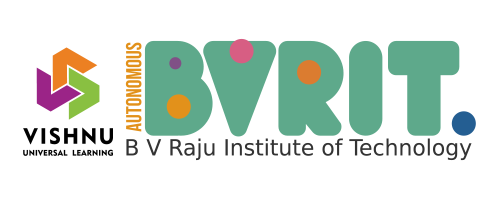Overview.
About Department
The Department of Basic Sciences and Humanities plays a unique and distinctive role in an institute where the ethos of science and technology prevails. The faculty of Basic Sciences and Humanities has been accomplishing its mandate through incorporation of the latest scientific ideas and techniques in almost all the professional programmes of higher education. Apart from preparing the students for higher courses, the department takes a major lead in demonstrating and enabling students to imbibe leadership qualities.
Quality Policy To practice high standards of academic excellence through improved teaching pedagogy that includes classroom interaction, case discussion, seminars by various industry experts and eminent academicians, hands-on training, group discussions and role- play, workshops, etc. The department strives for proper application of scientific learning in Engineering and upholding the highest ethical and professional standards. It pledges to discharge its duties and obligations to the students and staff efficiently & effectively and aim at continual improvement in all the related activities.
65
Faculty members
500+
Research papers
Programs Offered
B.Tech in Artificial Intelligence and Data Science
60
Intake
Objectives of the Department
- To impart value-based knowledge to the students.
- To keep pace with the growing needs of the society at large and industry in particular and prepare the students for life.
- To organize training programs/seminars/workshops for upgrading staff performance.
- To develop research activity and publish technical papers in National and International Journals.
VISION
To create and nurture competent engineers and managers who would be enterprise leaders throughout the world with a sound background in ethics and societal responsibilities.
MISSION
Committed to providing a positive and professional learning environment where all students are inspired to strive for excellence in becoming competent engineers, technology innovators and leaders in a global society through a cohesive network of parents, students, college staff and industry.
QUALITY POLICY
We aim at excellence in Technical Education through continual improvements and are committed to provide responsible technocrats for effective nation building through:
- Imparting quality Education & Training.
- Developing students with a Disciplined and Integrated personality.
- Facilitating faculty and supporting staff to update their knowledge and skills to match the industrial and technological developments.
Program Outcomes (POs)
PO1. Engineering Knowledge: Apply the knowledge of mathematics, science, engineering fundamentals, and an engineering specialization to the solution of complex engineering problems.
PO2. Problem Analysis: Identify, formulate, review research literature, and analyze complex engineering problems reaching substantiated conclusions using first principles of mathematics, natural sciences, and engineering sciences.
PO3. Design/Development of Solutions: Design solutions for complex engineering problems and design system components or processes that meet the specified needs with appropriate consideration for the public health and safety, and the cultural, societal, and environmental considerations.
PO4. Conduct Investigations of Complex Problems: Use research-based knowledge and research methods including design of experiments, analysis and interpretation of data, and synthesis of the information to provide valid conclusions.
PO5. Modern Tool Usage: Create, select, and apply appropriate techniques, resources, and modern engineering and IT tools including prediction and modeling to complex engineering activities with an understanding of the limitations.
PO6. The Engineer and Society: Apply reasoning informed by the contextual knowledge to assess societal, health, safety, legal and cultural issues and the consequent responsibilities relevant to the professional engineering practice.
PO7. Environment and Sustainability: Understand the impact of the professional engineering solutions in societal and environmental contexts, and demonstrate the knowledge of, and need for sustainable development.
PO8. Ethics: Apply ethical principles and commit to professional ethics and responsibilities and norms of the engineering practice.
PO9. Individual and Team Work: Function effectively as an individual, and as a member or leader in diverse teams, and in multidisciplinary settings.
PO10.Communication: Communicate effectively on complex engineering activities with the engineering community and with society at large, such as, being able to comprehend and write effective reports and design documentation, make effective presentations, and give and receive clear instructions.
PO11.Project Management and Finance: Demonstrate knowledge and understanding of the engineering and management principles and apply these to one’s own work, as a member and leader in a team, to manage projects and in multidisciplinary environments.
PO12.Life-long Learning: Recognize the need for, and have the preparation and ability to engage in independent and life-long learning in the broadest context of technological change.










